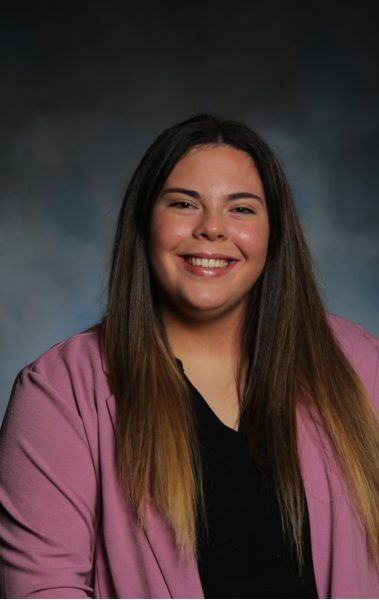Four indie debuts worth watching out for
May 24, 2018
The Sundance Film Festival has been a launching pad for countless filmmakers over the years, from Steven Soderbergh and Nicole Holofcener to Ryan Coogler and Quentin Tarantino. Similarly bright futures may await four first-time filmmakers from the 2018 edition, whose notable debuts will make their way to theaters this summer. With fresh voices, distinct styles and bold themes this quartet exemplifies the variety on display in Park City, Utah, each January.
Boots Riley, “Sorry to Bother You” (July 6)
With a cast led by Lakeith Stanfield, Tessa Thompson and Armie Hammer, the directorial debut of the Coup musician Riley hits viewers with a surreal satire of corporate culture, ambition, the art world and more in the Bay Area.
One-sentence pitch: “An absurdist dark comedy with magical realism and science fiction inspired by the world of telemarketing.”
Major influences: “Emir Kusturica’s ‘Black Cat, White Cat’ and ‘Underground’; Sergei Parajanov; Kubrick; a Paul Schrader movie called ‘Mishima.’ They’re translated through one, my eyes; two, what we’re able to accomplish with what we have; and three, how they would work in the story.”
Sundance experience: “It went somewhat like we expected it to in the sense that I was pretty confident that nobody had seen a movie like this before. [At] our premiere most of the audience was Sundance donors … They were not as lively of a crowd as we had since. I was sitting in my seat like a nervous wreck.”
What’s next: “I don’t know what I can talk about yet. But I’m writing a pilot, and I’m writing a feature. So basically I’m able to do whatever I want. They’re both going to be great.”
Carlos Lopez Estrada, “Blindspotting” (July 20)
Written by the film’s stars, Rafael Casal and Daveed Diggs, “Blindspotting” is set within a rapidly gentrifying Oakland, grappling with a complex web of issues including police violence and what it means when the corner market starts selling upscale green juice. Without ever becoming a full-blown musical, the film maintains the rhythms of spoken word and exists within a tone of stylized naturalism.
One-sentence pitch: “I describe it as a movie about identity, [it’s] a love letter to a city as much as it is documentation of a very unique friendship between the two main characters.”
Major influences: “‘Do The Right Thing’; ‘Friday’; ‘Jackie’; ‘The Shining.’ On paper if you see those movies as inspiration you’d say this is just a recipe for disaster. It took a lot of work, a lot of conversations to thread those together and make sure that hopefully all of the moments feel warranted and earned.”
Sundance experience: “Going there with your first film, and as an opening-night film — having people talk about it, having conversations about it on the street — I couldn’t think of a more surreal experience.”
What’s next: “Getting off a project that became so personal … I want to be sure that whatever I end up doing next will allow me to explore creative possibilities the way ‘Blindspotting’ did.”
Aneesh Chaganty, “Searching” (Aug. 3)
Director and co-writer Chaganty got his start as an in-house filmmaker at Google, working on a wide variety of projects. That connection to technology found a deeper expression with his debut feature, which tells the story of a father (John Cho) frantically trying to find his missing teenage daughter via multiple devices and screens.
One-sentence pitch: “It’s a very classic thriller told in a very unconventional way: The classic part is it’s about a dad searching for his missing kid, and the unconventional part is that the whole movie takes place on his daughter’s laptop.”
Major influences: “We watched anything that was related to a kidnapped child … anything in that vein of missing-person thriller and studied beats that worked, beats that didn’t. Then we started watching every single piece of content that ever took place on a computer screen.”
Sundance experience: “I wanted to go to Sundance ever since I saw the Sundance ‘Entourage’ episode when I was in early high school … it’s always been the capital-D dream. At the end of the day I was concerned: Our movie takes place on a computer screen — What are people going to say? We didn’t really know.”
What’s next: “What I can say is it’s another thriller, not on a computer screen, and it’s about a parent and a child. It’s like a half-Hitchcock movie, half ultra-thriller.”
Ari Aster, “Hereditary” (June 8)
Starring Toni Collette, Gabriel Byrne and Ann Dowd, along with young actors Alex Wolf and Milly Shapiro, “Hereditary” follows a family experiencing a period of unusual, seemingly supernatural, events. In some ways the less a viewer knows about the movie heading into it, the better, but prepare to be very freaked out.
One-sentence pitch: “I have from the beginning been describing the film as a family tragedy that evolves into a nightmare. Sometimes I’ll even just [say it’s] about a family that goes to hell.”
Major influences: “As far as the camera, I was thinking about [Stanley] Kubrick and ‘The Shining’ and I was thinking about Peter Greenaway … I don’t love his films, but I do find them very haunting. And there were a lot of Japanese ghost movies that were on my mind, like ‘Kwaidan’ and ‘Onibaba’ and ‘Ugetsu.’”
Sundance experience: “I think it’s any American filmmaker’s dream to have their first film premiere at Sundance. To watch it with an audience who were really in the grip of the film — there were people screaming and leaving the theater and people audibly upset throughout — it was really a wonderful experience.”
What’s next: “It’s been really amazing working with [distributor] A24 and seeing how the movie is being marketed. If anything, it just became clear that I was going to have the opportunity to make another one.”







